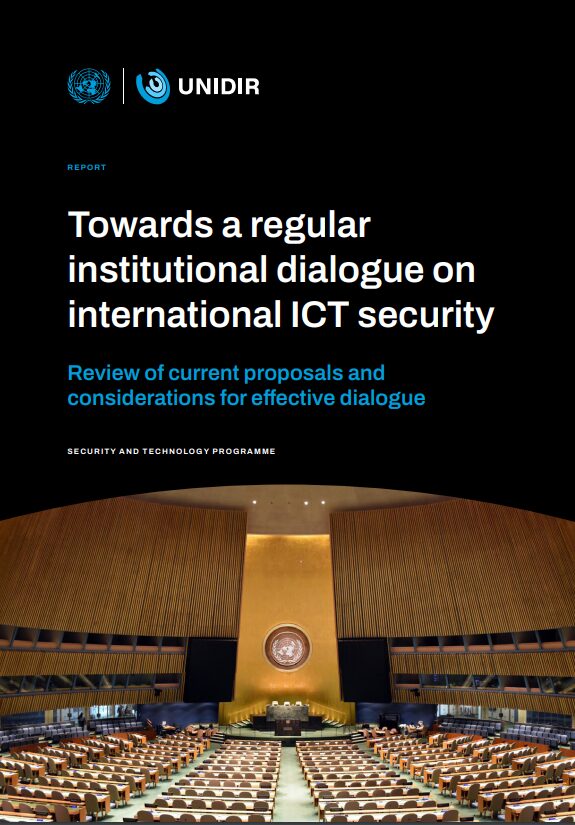This report, developed by UNIDIR’s Security and Technology Programme, reviews existing proposals for establishing a permanent United Nations mechanism to address international information and communications technology (ICT) security. The report explores key areas of convergence and divergence among states regarding the purpose, objectives, principles, structure and modalities of a future institutional dialogue. It aims to support States in their discussions on creating a mechanism that remains effective amid evolving ICT challenges.
Since 1999, the UN has expressed concern over the misuse of ICTs and initiated multilateral processes, including Groups of Governmental Experts and Open-ended Working Groups (OEWGs), to address ICT threats. With the second OEWG concluding in 2025, there is a recognized need for a permanent mechanism under UN auspices to ensure continuity in addressing ICT security. Key resolutions (75/240, 77/37, and 78/16) and past consensus OEWG reports have laid the groundwork for further action, culminating in States recommending the establishment of a future permanent mechanism at the 8th substantive session of the OEWG in July 2024.
Background
The initial iteration of this report was developed as food-for-thought to support discussions among State representatives during a UNIDIR workshop on future permanent mechanism convened in June 2024. An updated version of this report was shared with delegates ahead of the 8th substantive session of the Open-ended Working Group (OEWG) in July 2024, where formal deliberations on establishing a permanent mechanism on ICT security took place.
The new iteration synthesizes insights from UN General Assembly resolutions, OEWG sessions and State submissions, offering potential pathways for creating a fit-for-purpose permanent mechanism on ICT security. It also contains an appendix summarizing discussions from the June 2024 UNIDIR workshop and highlighting specific elements of the future permanent mechanism agreed by States at the OEWG in July 2024.
Key findings
This report highlights the following areas of convergence, divergence and key findings:
- Areas of convergence: States agree on the need for a permanent mechanism to promote international peace and security in cyberspace, as well as its general purpose, structure and guiding principles of inclusivity, flexibility, transparency, sustainability, complementarity and non-duplication.
- Areas of divergence: Differences remain regarding the mechanism’s precise modalities, thematic focus and programmatic priorities. Specific issues, such as its name, sequencing of activities, participation of non-governmental stakeholders and thematic groups, also require further discussions.
The report also highlights that the success and long-term viability of a permanent UN mechanism on ICT security will depend on finding a balance between high-level political discussions and technical exchanges. By building on areas of convergence and incorporating ongoing discussions around divergences, States can establish a sustainable mechanism capable of enhancing international cooperation and strengthening global ICT security over time while minimizing the risk of institutional gridlocks.
Citation: UNIDIR Security and Technology Programme, "Towards regular institutional dialogue on international ICT security: Review of current proposals and considerations for effective dialogue”, UNIDIR, Geneva, 2024.
